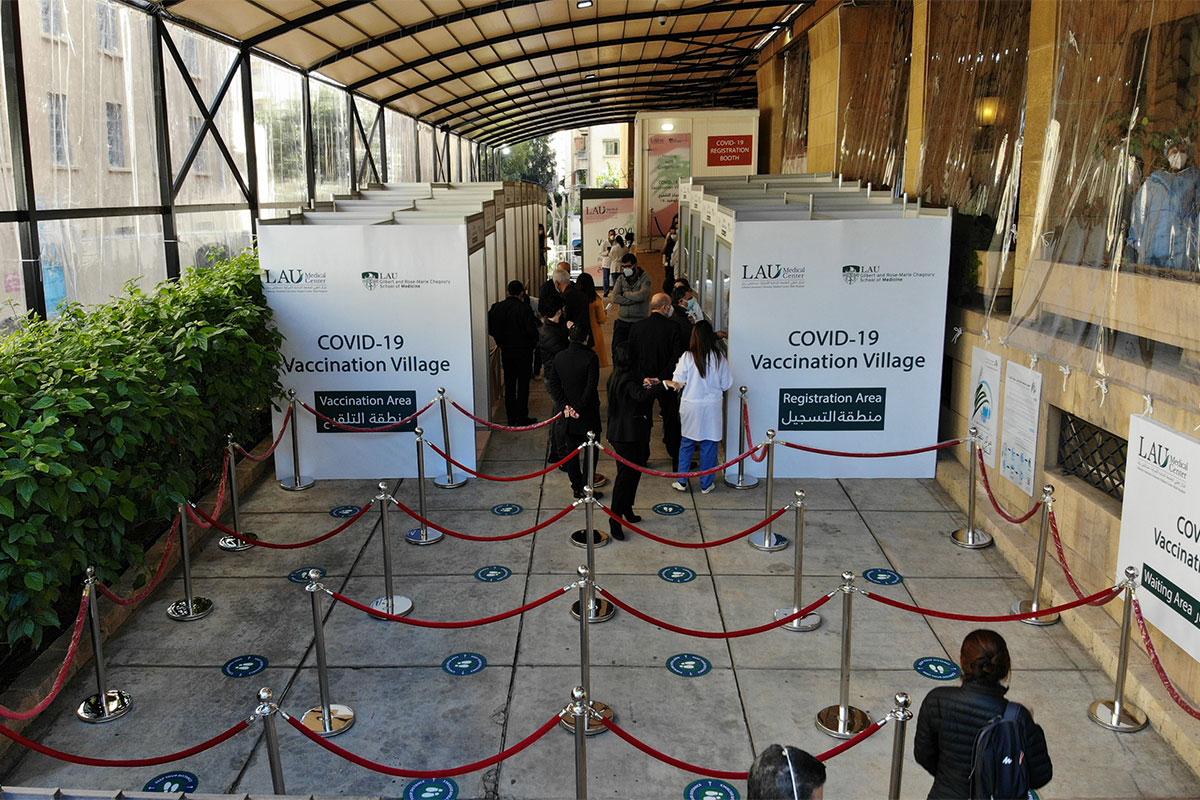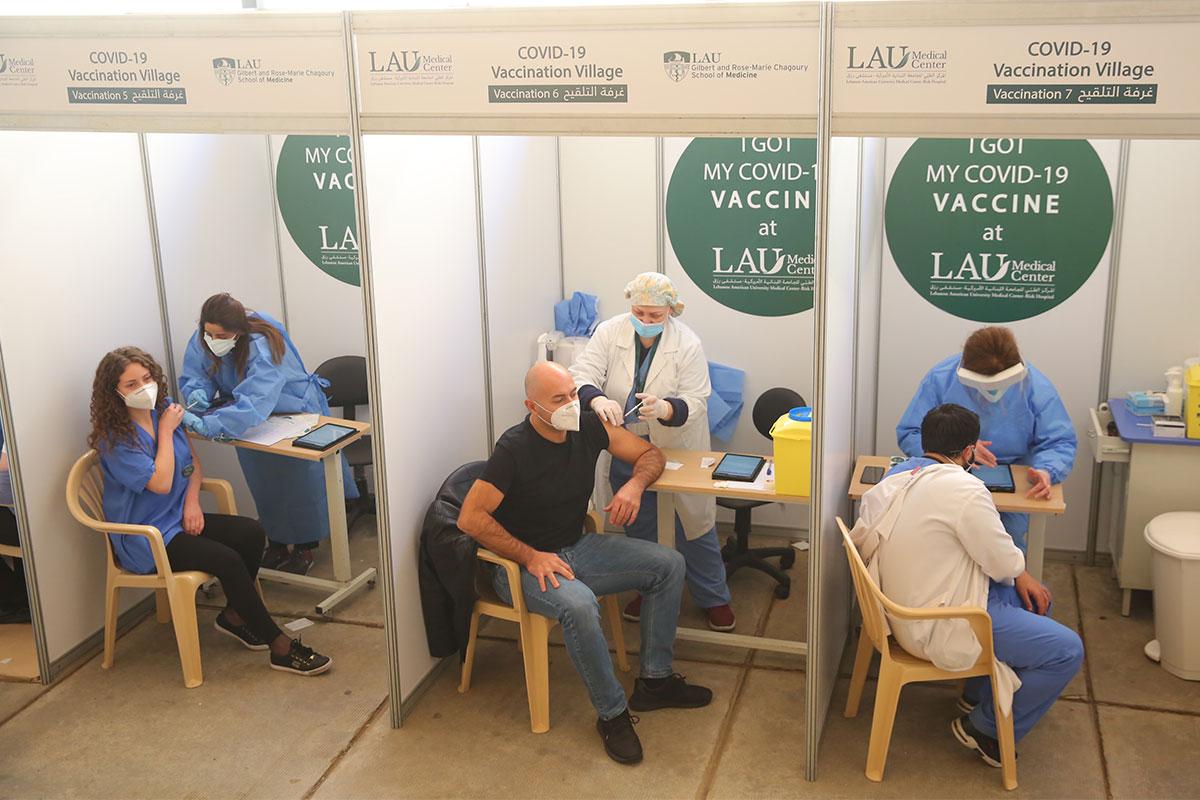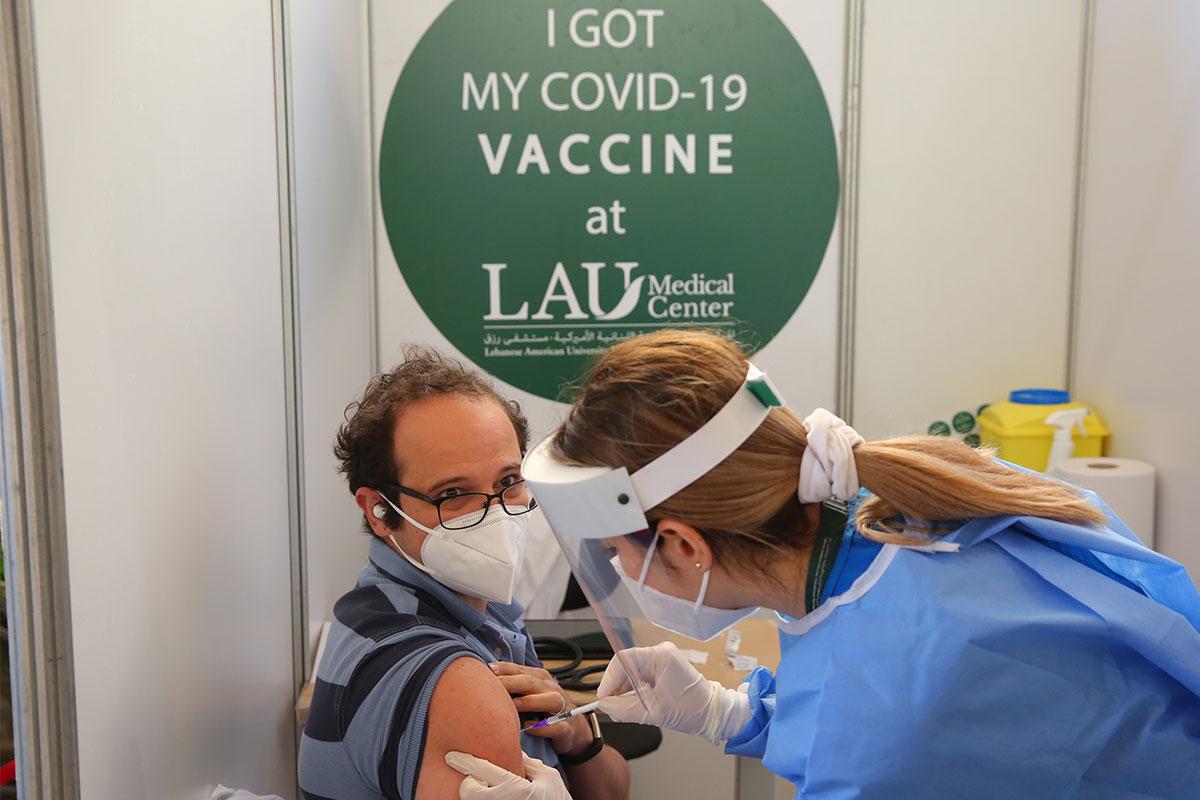LAU Ready for COVID-19 Vaccination Rollout
A designated joint LAU-LAU Medical Centers committee has been overseeing the university’s preparations for the COVID-19 vaccination campaign to optimize rollout.
As human losses mount from the second wave of COVID-19, and the economy suffers from a lockdown the country can ill afford, speed and efficiency are critical in rolling out the nationwide vaccination campaign to resume normal life.
For its part, LAU Medical Center-Rizk Hospital launched on February 16 its vaccination campaign after receiving the first batch of Pfizer-BioNTech vaccines from the Ministry of Public Health (MoPH). LAU had formed a vaccination committee to accelerate its preparedness levels for the immunization of the public and its community under prescribed safety conditions. The committee included representation from the LAU Medical Center-Saint John’s which is due to be inaugurated in March 2021 and will be at first dedicated to COVID-19 treatment.
Chaired by Vice President for Administration Roy Majdalani, and comprising LAU physicians and nurses, IT logistics and support, and communication staff, the committee was tasked with optimizing the preparedness of the university and the LAU Medical Center-Rizk Hospital, a national center for vaccination designated by the MoPH.
The committee’s mandate, said VP Majdalani, also includes “implementing the private inter-university vaccination program (LAU, the American University of Beirut Medical center, Hôtel Dieu de France and Saint George Hospital UMC) that will acquire vaccines for distribution and administration at all the university medical centers and in line with the MoPH guidelines, as well as leading and managing the vaccination of LAU front-liners, faculty, staff, and students.”
Site preparation and readiness; cold chain requirements at both the medical center and the university; training of the medical team, paramedical staff, security and clerical support; internal and external communication; an IT database, set-up of a patient’s portals; and ongoing coordination with the MoPH were only a few of the logistical requirements involved.
Clinical Professor in the Division of Infectious Diseases Jacques Mokhbat, who serves on LAU’s vaccination management committee and the National COVID-19 Committee, has been providing the much-needed updates and coordination between LAU’s plan and the national plan.
All medical personnel at LAU Medical Center-Rizk Hospital have undergone rigorous training with regard to vaccine storage, triage and administration of the vaccines.
“A vaccination village has been erected at Entrance A of the hospital for natural ventilation,” explains Chief Medical Officer and Operations Director of the committee Georges Ghanem. “It includes a waiting area, a registration desk, 10 vaccination stations where every ‘patient’ is received by a registered nurse (RN), and an internal negative pressure resting area where every vaccinated person is required to spend 10-15 minutes before leaving the village.”
An RN and a resident will be on hand at a nursing care point should there be a need for urgent intervention.
The resting area and the care point are prescribed precautionary measures to monitor any allergic reactions to the vaccine itself or any of its components, namely to polyethylene glycol (PEG), which “according to the January report based on the millions who have received the vaccine, has occurred in around 11 per million,” said Head of the Division of Infectious Diseases and Medical Co-Director of the vaccination campaign Roula Husni Samaha.
Reported side effects of the vaccine typically last a few days and are much like those of any vaccine: pain at the injection site, tiredness, headache, muscle pain, chills, joint pain, and fever. “Of note,” explained Dr. Husni Samaha, “more people experienced these side effects after the second dose, so it is important for vaccination providers and recipients to expect that there may be some side effects after either dose, but more so after the second.”
The committee’s immediate plan is to ensure rollout to priority populations as per MoPH guidance and vaccination availability. To that end, the village “is open six days per week, eight hours a day to allow for around 400 vaccinations per day – a capacity that could be increased to 600 a day,” said Dr. Ghanem.
Meanwhile, LAU president and members of the committee are intensifying their efforts for the direct private procurement of the vaccines. The purpose is to accelerate the rate of immunization across Lebanon and achieve faster herd immunity to save more lives and enable a faster return to normal lives. LAU held a press conference on February 16 to reassert its strong endorsement of vaccination and call on all to engage in the vaccination campaign.
“The pursuit of the vaccine by LAU directly and by the consortium of not-for-profit university hospitals, of which LAU is part, is meant to supplement and complement the efforts of the MoPH,” said LAU President Michel E. Mawad. “It will be conducted in cooperation with the ministry, following its guidelines and those of the Centers for Disease Control and Prevention (CDC) in Georgia.”
Once and if secured, the vaccines will be free of charge and of administration fees, administered equitably and in observance with the ministry’s and the CDC’s lists of priorities.
Please visit LAU’s Vaccination page for more updates on the LAU Vaccination Plan or to contact the committee members.


